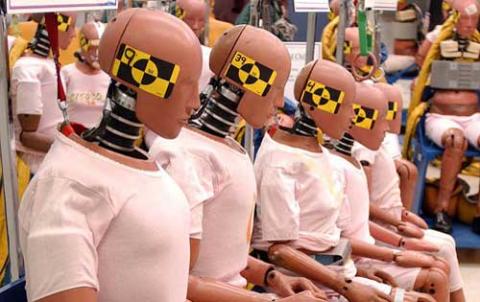From Timothy Taylor’s analysis of driverless cars at the Conversable Economist, a passage about the way the function (and meaning) of automobiles may change:
“Driverless cars might be faster, but in addition, they open up the possibility of using travel time for work or relaxation. Your car could become a rolling office, or a place for watching movies, or a place for a nap. ‘An automated transportation system could not only eliminate most urban congestion, but it would also allow travelers to make productive use of travel time. In 2010, an estimated 86.3 percent of all workers 16 years of age and older commuted to work in a car, truck, or van, and 88.8 percent of those drove alone … The average commute time in the United States is about 25 minutes.
Thus, on average, approximately 80 percent of the U.S. workforce loses 50 minutes of potential productivity every workday. With convergence, all or part of this time is recoverable. Self-driving vehicles may be customized to serve the needs of the traveler, for example as mobile offices, sleep pods, or entertainment centers.’ I find myself imagining the overnight road-trip, where instead of driving all day, you sleep in the car and awake at your destination.” (Thanks Browser.)
Tags: Timothy Taylor

